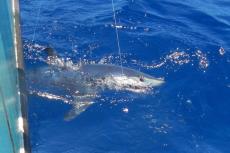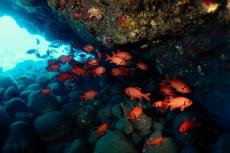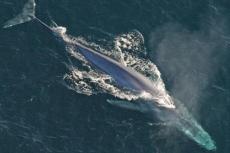Environmental Stress Drives Sharks from Coral Reefs
Researchers have documented how climate change is reshaping the behaviour of grey reef sharks, a species crucial to coral reef ecosystems. Increasing environmental stress is pushing these sharks to spend less time in their traditional habitats, potentially impacting both their survival and the health of the reefs.
The study, led by Michael J. Williamson, analysed data from over 700,000 shark detections across the Chagos Archipelago in the Indian Ocean between 2013 and 2020. It reveals that grey reef sharks are showing signs of distress. As coral ecosystems are impacted more and more by pollution and climate change, these sharks are reducing their time on the reefs. Instead, they are expanding their ranges and spending more time away from their ranges.
Such changes in behaviour could have significant implications for both the sharks and the coral reefs they inhabit, for the presence of reef sharks is a vital factor in reef health.
The global decline of coral reefs
Over the past two decades, coral reefs around the world have seriously declined due to disease, pollution, cyclones, and bleaching events caused by rising sea temperatures. These stressors have not only reduced the extent of coral habitats and biodiversity but also altered the complex web of life that relies on these underwater ecosystems.
The effect of reef stress on grey sharks
The study used a composite environmental stress index, incorporating factors such as sea surface temperature, wind, and current conditions, to gauge how these variables impact reef health and shark behaviour. The findings indicate that higher environmental stress leads to reduced residency of grey reef sharks, a trend that persists for up to sixteen months after the stress peaks.
Interestingly, the study also uncovered some positive news. Not all areas within the reef showed a decrease in shark residency. Some regions experienced increased residency, suggesting that local factors such as reef resilience and predator-prey interactions may play a role in mitigating the effects of stress.
Such variations illustrate how important it is to understand how reef conditions affect shark movements, particularly for targeted conservation efforts.
Far-reaching implications
The implications of these findings are far-reaching. For one, reduced residency could mean that reef sharks, already under threat from overfishing and habitat loss, might be more vulnerable to illegal and unregulated fishing practices as they venture into less protected areas. Additionally, changes in shark behaviour could lead to shifts in reef nutrient dynamics, affecting the overall health of coral ecosystems.
Better shark protection urgently needed
As climate change continues to intensify as a result of global warming, the study underscores the urgent need for comprehensive conservation strategies that account for the way marine species interact with each other and with their environments.
By improving our understanding of how environmental stress affects shark behaviour, scientists hope to better predict and mitigate the impacts of climate change on these vital ocean ecosystems.



































